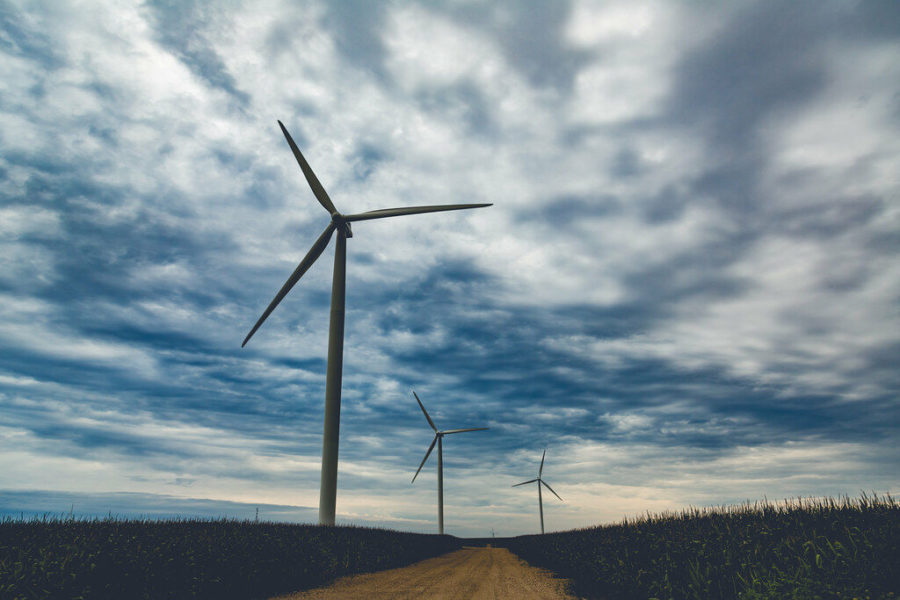The future of renewable energy for the individual consumer
Wind turbines create a lot of clean energy for people to use. Iowa has many wind farms to help create more clean energy.
October 12, 2021
Carrie Chapman Catt Center hosted a speaker to talk about the future of clean energy as America examines alternative renewable resources.
Jon Carson, founding and managing partner of Trajectory Energy Partners, spoke about the future of alternative, clean energy as more states, like Iowa, are shifting to renewable resources. Carson seeks to inspire the Iowa State and Ames community to fight for the transition to renewable energy.
A number of issues such as how a community can help transition into clean energy, the contention of switching over to clean energy and how switching to renewable energy creates a spread like a wildfire, said Carson, were addressed.
Carson said although mass action such as protesting is useful, the battle is not at the federal level but rather at a local and state level. City council and county board meetings are where the decisions on where the community gets their energy from. It is through local and state-level actions that we get our electricity, not the federal level.
“You can be a part of, at the local level and the state level as an individual consumer, this amazing transition that we are in the middle of,” said Carson.
In the U.S., about 10 percent of all electricity is controlled by city councils, said Carson.
Solar and wind farms can provide a transition into renewable energy. If the U.S. is going to switch to renewable energy, coal and natural gas plants must be shut down, Carson explained when talking about the effects of transitioning to renewable energy.
According to Carson, companies are shutting down fossil fuel plants and switching to renewable energy as it is producing more cheap, reliable energy in the twenty-first century.
Carson said when one town begins to switch over to renewable energy, and it works, neighboring cities will start to adapt their model to their own city until it reaches the state level. Even when one person decides to put solar panels that save them on their electricity bills, their neighbor might get inspired to do the same. Thus, continuing the spread of renewable energy.
An example mentioned is none other than the Ames’s community solar that offers credit from what solar panels are producing to subscribers who might not be able to have solar panels on their property. This idea inspired the neighboring state of Illinois to apply their model to their state as it was proven to work.
However, Carson said there are constant debates held in city councils and county boards over whether or not to commit to renewable energy or not.
The event ended with a Q&A where Iowa state students got to ask Carson questions pertaining to renewable energy. Topics such as electric cars, nuclear energy and Iowa State’s usage of fossil fuels were all brought up.
There will be a discussion workshop from 6-8 p.m. Oct. 13 to discuss renewable energy and practice civic skills.







